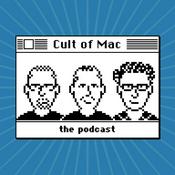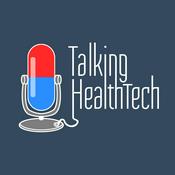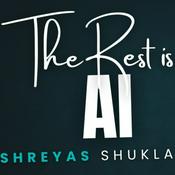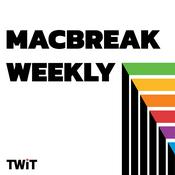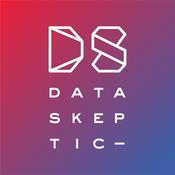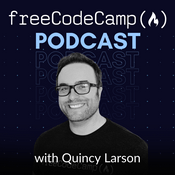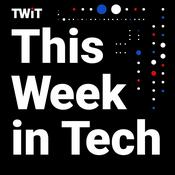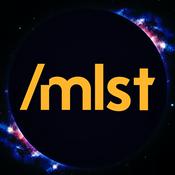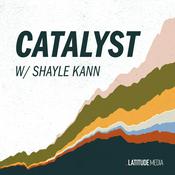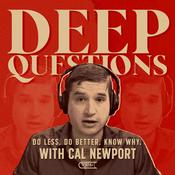The Daily AI Show
The Daily AI Show Crew - Brian, Beth, Jyunmi, Andy, Karl, and Eran
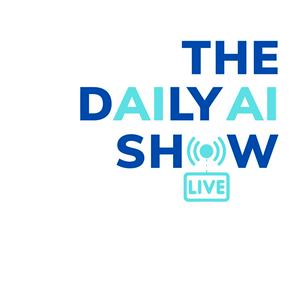
Latest episode
694 episodes
- Tuesday’s show focused on the rapid expansion of Claude across apps, platforms, and workflows, and the practical friction that shows up when people actually live inside these tools. The discussion blended breaking product news, hands-on Claude Code experience, and broader market signals around ads, chips, and real-world AI performance. The throughline was clear, AI capability is accelerating faster than usage discipline, pricing models, and operational norms can keep up.
Key Points Discussed
00:00:00 👋 Opening, episode context, January 27 kickoff
00:01:40 🤖 ClawdBot rebrand to MoltBot, local agents, cost control, and hype cycle
00:06:20 🔌 Claude desktop adds deep integrations, Asana, Figma, Slack, Box, Clay, Monday, Salesforce
00:11:30 🧰 MCP Apps, open integrations, and why this unlocks rapid ecosystem copying
00:16:10 📜 Dario Amodei essay, “The Adolescence of Technology,” framing AI risk and maturity
00:23:40 🧠 Reading AI essays vs summaries, slowing down for first-principles thinking
00:27:20 🌦️ NVIDIA Earth-2 open models, AI weather forecasting, and global access benefits
00:32:10 🧱 Microsoft Azure Maya chip, competing with NVIDIA, inference and Copilot scale
00:36:40 🧠 Moonshot Kimmi K-2, open source multimodal cloning and swarm behavior
00:41:20 💸 Claude Code usage limits, Pro vs Max plans, timeouts, and real project pressure
00:48:10 🧩 Context windows, refactoring, segmentation, and starting fresh sessions
00:54:30 📊 OpenAI ad pricing rumors, $60 CPMs, intent vs attribution debate
01:02:40 📈 Prediction Arena, Grok performance, real-world reasoning and market signals
01:10:30 🧠 X, Reddit, signal dilution, and where AI discourse still concentrates
01:16:40 🧑💻 Claude Code workflow tactics, start/stop scripts, Redis, FFmpeg, local control
01:22:30 🎥 Video search, visual moments, finding clips without transcripts
01:26:30 🏁 Wrap-up, project updates, and sign-off
The Daily AI Show Co Hosts: Beth Lyons, Andy Halliday, and Brian Maucere - Monday’s show focused on alternative paths to AI progress and adoption. The conversation opened with Sakana’s growing influence and partnership with Google, then moved through shifts in AI traffic share, local agent systems like Claude Bot, and hands-on world modeling tools. The second half turned more reflective, covering app creation via vibe coding, enterprise hesitation around AI data, and a closing discussion on how the next generation may be trained to work with AI much earlier than today.
Key Points Discussed
00:00:00 👋 Monday kickoff, weather check, weekend context
00:01:20 🐟 Sakana partnership with Google, evolutionary AI and non-scaling approaches
00:07:10 🧠 Sakana history, Attention Is All You Need authorship, research culture
00:13:40 📄 Sakana papers, AI Scientist, ALE agent, and why publishing still matters
00:19:30 📊 Generative AI traffic share, Gemini growth vs OpenAI decline
00:24:40 🧰 Manus acquisition by Meta, GenSpark as an alternative
00:29:10 🤖 Claude Bot overview, local orchestration, private agents
00:36:20 💻 Hardware requirements, local vs cloud models, sandboxing risks
00:43:30 🧠 Claude Code comparisons, messaging interfaces vs desktop workflows
00:47:50 🌍 What local AI agents signal about future productivity
00:50:30 🧱 World Labs valuation jump and release of world-model APIs
00:55:40 🏠 Live demo discussion, 3D world generation and architecture use cases
00:59:30 📱 iOS app surge, Replit, vibe coding, and App Store publishing
01:03:40 🎓 Stanford AI for All program, access, cost, and equity concerns
01:07:00 🏁 Wrap-up, week preview, and sign-off
The Daily AI Show Co Hosts: Beth Lyons, Andy Halliday, and Brian Maucere - We are moving from "AI as a Chatbot" to "AI as a Proxy." In the near future, you won't just ask an AI to write an email; you’ll delegate your Agency to a surrogate (an "Agent") that can move money, sign contracts, and negotiate with other agents. Imagine a "Personal Health Agent" that manages your medical life. It talks to the "Underwriting Agent" at your insurance company to settle a claim. This happens in milliseconds, at a scale no human can monitor.Soon, we will have offloaded our Agency to these proxies. But this has created a "Conflict of Interest" at the hardware level:Is your agent a Mercenary (beholden only to you) or a Citizen (beholden to the stability of the system)?The conundrum:As autonomous agents take over the "functioning" of society, do we mandate "User-Primary Allegiance," where an agent’s only legal and technical duty is to maximize its owner's specific profit and advantage, even if that means exploiting market loopholes or sabotaging rivals (The Mercenary Model), or do we enforce "Systemic-Primary Alignment," where all agents are hard-coded to prioritize "Market Health" and "Social Guardrails," meaning your agent will literally refuse to follow your orders if they are deemed "socially sub-optimal" (The Citizen Model)?
- Friday’s show centered on how Claude Code is shifting from a development tool into a daily operating system for work and life. The conversation blended hands on Claude Code updates, real usage stories, and a wide ranging news roundup that reinforced how fast AI is moving into infrastructure, education, voice, chips, and media. The dominant theme was not automation, but co working with AI over long stretches of time.
Key Points Discussed
00:00:00 👋 Opening, Friday kickoff, week in review
00:02:40 🧵 Claude Code saturation on LinkedIn and why it is everywhere
00:05:20 🛠️ Claude Code task system upgrade, task primitives, sub agents, and orchestration
00:09:30 🧪 Real world Claude Code build, long running sessions and autonomous fixing
00:15:10 🎥 FFmpeg, Redis, and why local infra matters for Claude Code projects
00:20:30 🧠 Daily AI Show 5x5 project, transcripts, VTTs, and automated clip selection
00:26:10 📚 Google and Princeton Review, Gemini powered SAT prep
00:28:40 🤔 Gemini self doubt, time awareness, and red teaming side effects
00:34:00 🧠 Model awareness, slash model commands, and grounding context
00:37:30 🏭 TSMC capacity crunch, Apple, Intel fabs, and AI chip pressure
00:43:20 🇰🇷 South Korea AI Basic Act, governance and enforcement timelines
00:46:10 💻 Salesforce engineers using Cursor at scale
00:48:30 🎙️ Google acquihires Hume, emotionally aware voice AI
00:51:40 🧠 Yann LeCun, world models, and Logical Intelligence
00:55:10 🎬 Runway 4.5, AI video realism study, humans barely detecting fakes
00:58:50 🧩 Rebecca Boltzma post, Claude Code as a life operating system
01:04:30 🗣️ AI as co worker, agency, pushback, and human evolution framing
01:08:40 🏠 Alexa desktop experience, zero token limits, and ambient AI
01:14:50 🏁 Wrap up, community reminders, Conundrum episode, and weekend sign off
The Daily AI Show Co Hosts: Beth Lyons, Andy Halliday, and Brian Maucere - Thursday’s show explored where AI belongs and where it does not, across art, devices, and software creation. The discussion moved from backlash against AI-generated art to Apple’s rumored AI pin, before settling into a long, practical examination of Claude’s revised Constitution and real-world lessons from working with Claude Code on complex, multi-day builds. The throughline was clear, AI works best when treated as a collaborator inside structured systems, not as magic or pure “vibes.”
Key Points Discussed
00:00:00 👋 Opening, intros, agenda for the day
00:01:10 🎨 Comic-Con bans AI-generated art, backlash from artists
00:06:40 ⚖️ Copyright, disclosure, and where AI-assisted art fits
00:12:30 🎵 AI-assisted music, Liza Minnelli, ABBA, Tupac, and precedent
00:18:20 👁️ Transparency vs deception in AI creative work
00:21:40 📌 Apple rumored camera-equipped AI pin and Siri rebuild
00:27:10 ⌚ Wearables, rings, glasses, pins, and interface tradeoffs
00:33:40 🧠 Voice vs writing, diagrams, and capture reliability
00:38:10 📜 Claude’s revised Constitution, principles over rules
00:43:50 🧩 Constitutional AI, safety, ethics, and priority ordering
00:49:20 🗂️ Applying constitutional thinking to local Claude Code use
00:54:10 🧑💻 Real Claude Code experience, multi-day builds and drift
00:58:40 🧠 “Vibe coding” vs project management and engineering reality
01:03:30 🏁 Wrap-up, upcoming conundrum episode, newsletter reminder
The Daily AI Show Co Hosts: Beth Lyons, Andy Halliday, and Brian Maucere
More Technology podcasts
Trending Technology podcasts
About The Daily AI Show
The Daily AI Show is a panel discussion hosted LIVE each weekday at 10am Eastern. We cover all the AI topics and use cases that are important to today's busy professional.
No fluff.
Just 45+ minutes to cover the AI news, stories, and knowledge you need to know as a business professional.
About the crew:
We are a group of professionals who work in various industries and have either deployed AI in our own environments or are actively coaching, consulting, and teaching AI best practices.
Your hosts are:
Brian Maucere
Beth Lyons
Andy Halliday
Eran Malloch
Jyunmi Hatcher
Karl Yeh
Podcast websiteListen to The Daily AI Show, The Last Invention and many other podcasts from around the world with the radio.net app

Get the free radio.net app
- Stations and podcasts to bookmark
- Stream via Wi-Fi or Bluetooth
- Supports Carplay & Android Auto
- Many other app features
Get the free radio.net app
- Stations and podcasts to bookmark
- Stream via Wi-Fi or Bluetooth
- Supports Carplay & Android Auto
- Many other app features


The Daily AI Show
Scan code,
download the app,
start listening.
download the app,
start listening.












